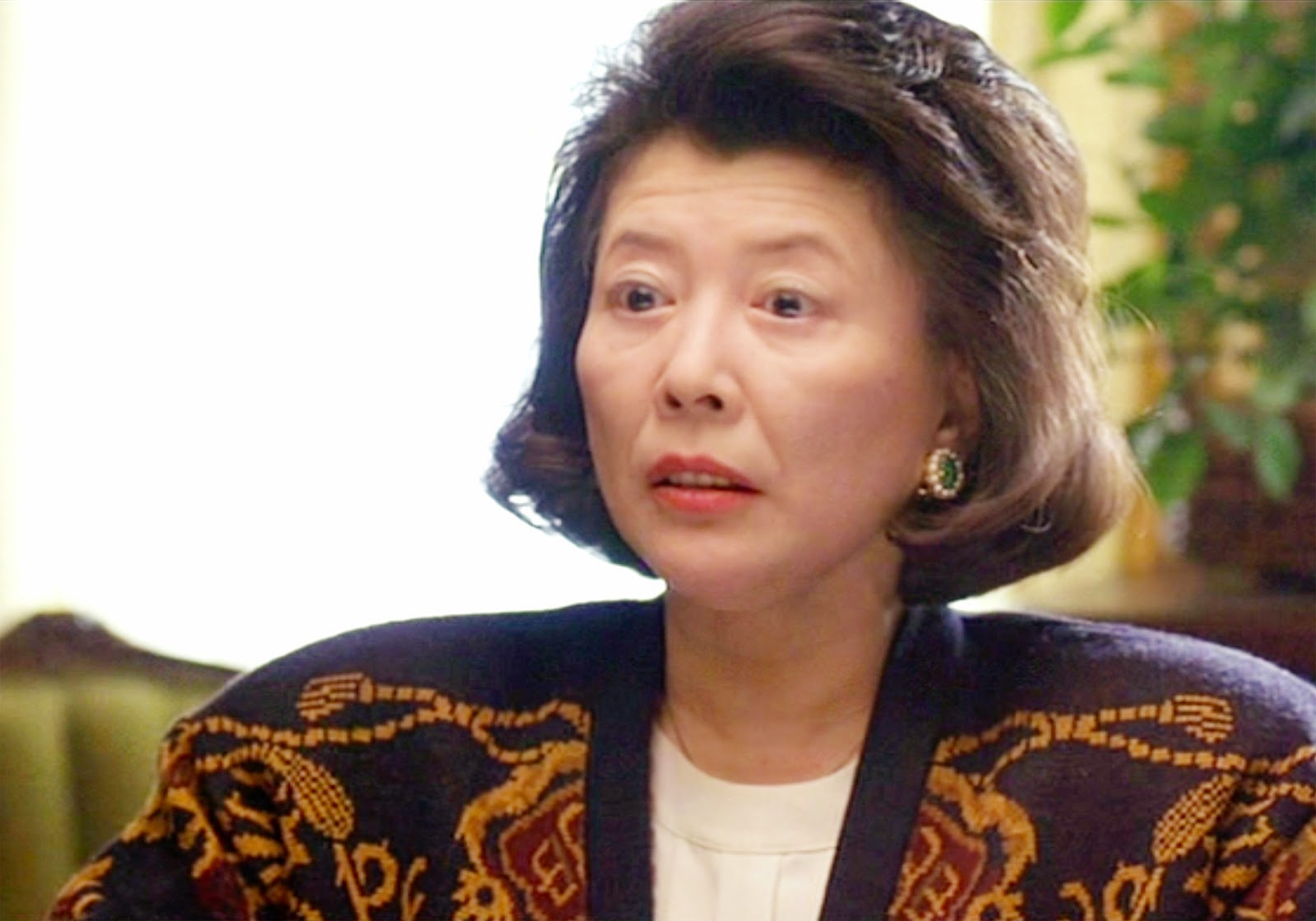

When she sees the extra person, she decides to cook the eleventh crab, the one missing a limb. Woo hadn't counted Waverly's daughter, Shoshana, and so she purchased only ten whole crabs. There are eleven people at the New Year's celebration. Woo begins to boil the crabs she cannot bear to see them die. When they return home, Jing-mei watches her mother cook, but she leaves the room when Mrs. After a lengthy discussion, the fishmonger threw it in for free. Woo refused to accept it because a maimed crab is bad luck for the New Year.

As she was spearing the live crabs from the tank, one of them lost a limb. Jing-mei listened patiently to her mother as she poked the crabs to find the liveliest ones. She was especially bothered by their cat, which Jing-mei and the tenants suspect that she poisoned. That day, her mother was annoyed about the tenants living in the second-floor apartment of a six-unit building that she owns. Jing-mei had helped her mother shop for the crabs that she served at the New Year's dinner. Later, Jing-mei will notice other Chinese wearing similar pendants and will ask one of them what the pendant signifies. After her mother's death, however, the pendant will begin to assume great importance to her - even though she does not really understand the meaning that her mother assigned to it. Tan is an astute storyteller, enticing readers to immerse themselves into these lives of complexity and mystery.After a Chinese New Year's dinner, Jing-mei's mother gave her a jade pendant which she said was her "life's importance." At first, Jing-mei did not like the pendant it seemed too big and ornate. Mothers boast or despair over daughters, and daughters roll their eyes even as they feel the inextricable tightening of their matriarchal ties. As each woman reveals her secrets, trying to unravel the truth about her life, the strings become more tangled, more entwined. With wit and sensitivity, Amy Tan examines the sometimes painful, often tender, and always deep connection between mothers and daughters. Or to prolong what was already unbearable." Forty years later the stories and history continue.

"To despair was to wish back for something already lost. Rather than sink into tragedy, they choose to gather to raise their spirits and money. United in shared unspeakable loss and hope, they call themselves the Joy Luck Club. In 1949 four Chinese women, recent immigrants to San Francisco, begin meeting to eat dim sum, play mahjong, and talk. Unconfident and sensitive to criticism, Jing-Mei is left even more aimless after her mother's death, forced to grapple with both her choices and her grief.įor readers of Amy Tan's bestselling novel, The Valley of Amazement, revisit her classic tale of mothers and daughtersįour mothers, four daughters, four families whose histories shift with the four winds depending on who's "saying" the stories. Stuck in a middling job, she has few hopes for the future and fewer still for herself.

As a child, Jing-Mei stubbornly avowed, "I won't be what I'm not," but now that she's an adult, she seems to have lost much of her childhood determination. Personality… headstrong, but unfocused and sensitive. Now that Suyuan's dead, Jing-Mei is still struggling to understand her mother and their fraught relationship. In life, Jing-Mei and her mother had a rocky relationship, with Jing-Mei often vacillating between wanting her mother's approval and resenting Suyuan for her high expectations. While all her Chinese childhood friends are married or engaged, Jing-Mei is unattached – and with her mother just dead, it's probably going to be a long time before she's ready to date.Ĭhallenge… understanding her mother. And when Jing-Mei can't, she feels her failures keenly. Whether as daughter, Chinese-American, or friend, she wants to fit into the roles assigned for her. For all her childhood rebellion, Jing-Mei hates disappointing others. Interests… rebelling against expectations – and living up to them. After starting "half a degree in biology, then half a degree in art, and then finishing neither," Jing-Mei dropped out of college and found herself a decently-paid, if modest, job in writing ads. Suyuan Woo's death comes as a surprise to all her friends, but especially her daughter, who still had many unasked questions for her mother. Initially as eager as her mother, Jing-Mei eventually learned to hate the pressures of being extraordinary and became "determined not to try, not to be anyone different." Growing up in a highly competitive environment, Jing-Mei was pressured by her mother to become a prodigy.


 0 kommentar(er)
0 kommentar(er)
